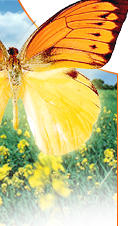Humane
Sustainable Development, by Richard M. Clugston. Dr. Clugston describes
three major shifts we must make to achieve humane sustainable development: Recognize
that existence is a living and interconnected community of diverse subjects who
deserve our respect and care. Create a new "bottom line" for economics
and development that differentiates between constructive and destructive economic
activities. Create open, participatory processes that empower people to contribute
at all levels of decisionmaking.
Earth Charter Ethics and Animals,
by Steven C. Rockefeller. He explains that the Earth Charter endeavors
to inspire in all peoples commitment to a new ethic of respect and care of the
whole community of life. The first two principles of the Earth Charter provide
a solid foundation on which to build a new global ethics: Respect Earth and life
in all its diversity, and care for the community of life with understanding, compassion,
and love. Principle 5 calls for the preservation of the diversity of animal species
and the habitat required to sustain this diversity.
To Care is Not
Enough, by John A. Hoyt. He emphasizes the Earth Charter's principle
1, which states, "Recognize that all beings are interdependent and every
form of life has value regardless of its worth to human beings." Mr. Hoyt
expresses that caring about someone or something is not finally enough. It is
imperative that we become connected with that other person, creature, or being
in a way that does not permit us to exploit or "use" it for our own
narrow purposes. Only with this kind of ethic and commitment can sustainability
be realized.
A Buddhist Perspective on Development, by
Daisaku Ikeda. A Buddhist philosopher, author and peace builder, Mr. Ikeda
teaches that all life is interconnected and mutually supporting, a relationship
described as "dependent origination" in Buddhism. He expresses that
a contributive way of life is based on an awareness of the interdependent nature
of our lives and of the relationships that link us to others and our environment.
Bioethics: Its Scope and Purpose, by Michael W. Fox.
Dr. Fox describes bioethics as entailing the objective appraisal of how our values,
desires, and actions affect others, including animals and the environment. Bioethics
enhances dialogue and facilitates conflict resolution and provides a firm foundation
for a just and humane society.
Humane Relations to Wildlife: Aldo
Leopold's Ethical Evolution, by Susan L. Flader. Prof. Flader presents
the land ethic of renown environmental thinker Aldo Leopold, which is comprised
of three tenets: integrity (the diversity of the community), stability (the health
of the system), and the beauty (values beyond the merely economic).
Community
as Covenant with All Species, by Frederick L. Kirschenmann. The
author discusses why mutuality covenants are effective in influencing human behavior
with respect to other species than either moral duty or recognition of rights.
Humans are not separate from nature and unless views change, we could experience
a 20 percent extinction rate in total global diversity by 2020.
Humane
Sustainable Development in Practice, by Heather Tallent. Ms. Tallent
identifies three initiatives that show how financial and social benefits can be
achieved by communities that create sustainable livelihoods, protect animals,
and practice humane sustainable agriculture. The three initiatives are the Global
Alliance for Humane and Sustainable Development based in Costa Rica, the Jane
Goodall Institute's Lake Tanganyika Catchment Reforestation and Education (TACARE)
Project based in Africa, and the Integrated Humane and Conservation Development
at Tanjung Putting National Park, in Kalimantan, Indonesian Borneo.
Humane
Sustainable Agriculture: A Forum. This forum discussion is taken from
three separate publications. They discuss the problems of factory farming, farming
ethics, and a definition of humane sustainable agriculture.
Ecological
Security: A View from Gandhi's Window, by Kamla Chowdhry. Ms. Chowdhry
encourages us to listen to the voice of Gandhi if the development paradigm of
perpetual growth is to change and if the world is to survive. Gandhi showed by
his simple lifestyle that the road to ecological security and to peace lies in
simplicity and in spirituality.
